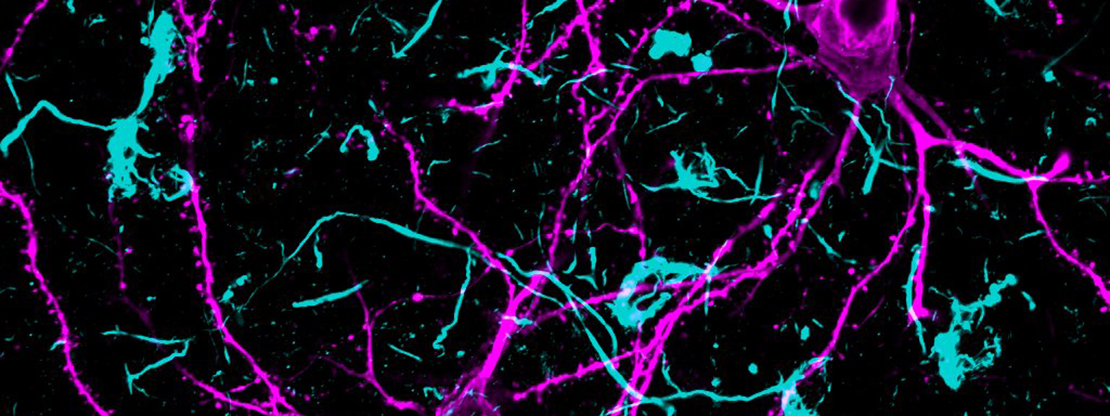Last year, Van Andel Institute assistant professor Hong-yuan Chu, Ph.D., was awarded a 2020 NARSAD Young Investigator grant by the Brain & Behavior Research Foundation. The awards support promising scientists who are completing fellowship training or at the start of their career as independent research faculty.

Chu’s award will support his laboratory’s efforts to understand the relationship between alpha-synuclein — abnormal proteins that have been linked to Parkinson’s disease — and the amygdala, a part of the brain that helps regulate emotions.
We caught up with Dr. Chu to discuss what this award means for his work at the Institute.
What do you study at VAI?
I run a research laboratory in the Department of Neurodegenerative Science focusing on Parkinson’s disease. Our research aims to understand how cells and cell-to-cell communication in the brain are affected by Parkinson’s. We hope to develop novel and effective therapies to modify disease progression and alleviate suffering of people with Parkinson’s.
This grant supports your research into the relationship between alpha-synuclein and the amygdala. What is the amygdala, and what is alpha-synuclein? Why is their relationship important?
In our brain, there exists a network that controls our emotions and memories associated with emotion. For example, a flash of remembrance of previous holiday parties perhaps makes you feel happy, while recalling an attack by a poisonous snake provokes fearful feelings. The amygdala is the central hub that regulates positive and negative emotions.
Alpha-synuclein is a protein enriched in the human brain and other organs. The biological function of alpha-synuclein is not fully understood, but its abnormal aggregation plays a mysterious role in why and how Parkinson’s disease arises.
An interesting and very important clinical observation is that the amygdala shows high levels of alpha-synuclein clumps in people with Parkinson’s, and these people often experience different psychiatric symptoms, such as apathy, anxiety and depression-like behaviors. Thus, it is likely that alpha-synuclein clumps in the amygdala causally contribute to emotional changes in people with Parkinson’s. We plan to test this possibility and further determine the biological mechanisms at the molecular and cellular level.
What big question(s) do you hope to answer by studying the relationship between alpha-synuclein and the amygdala?
Studying the biological implication of alpha-synuclein pathology in the amygdala has the potential to provide insight into the basic biology that underlies psychiatric symptoms in people with Parkinson’s. In addition, it could inform the design of novel treatments for such symptoms.
What will the Young Investigator award allow you to do?
This award from the BBRF will provide the initial support allowing us to study this important, but largely unexplored, field. Particularly, we can recruit and provide opportunities to young researchers who are interested in this topic. With this support, we hope to solicit significant federal funding in the near future to support the long-term goals of this work.
Learn more about Dr. Chu’s research at chulab.vai.org.
Image: Alpha-synuclein clumps in the amygdala (cyan) and neurons in the amygdala (magenta). Courtesy of the Chu Laboratory at Van Andel Institute.

